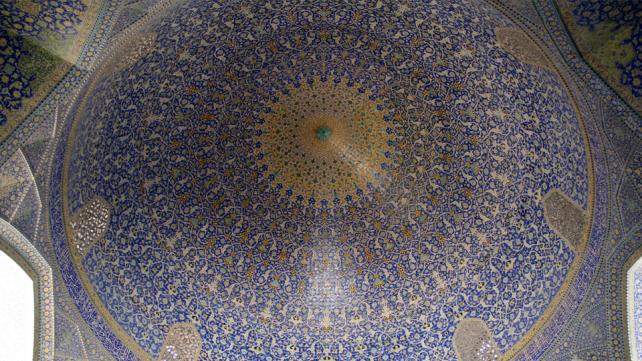
Shia-Sunni violence has been on the rise in the last few years, particularly in Iraq and Pakistan. Every month, it seems, scores of Shias and Sunnis are killed in a vicious tit-for-tat between extremists on both sides. Many of the victims are killed as they pray or are in mosques.
These incidents belie the reality of Shia-Sunni coexistence and cooperation. In Iraq, it is estimated that up to 30 percent of marriages are between Shias and Sunnis; victims of violence between the two groups frequently attend each other's funeral prayers; one group often helps the other's victims after an incident.
This silent majority must come together through dialog to defeat the terrorists who have been responsible for these killings.
Seven reasons why a dialog between Shia and Sunni is needed:
- Theological differences between Shia and Sunni are old and are better left for God to judge, as He knows best and has said in the Quran that He is the final judge of religious disagreements. The killing of Shias or Sunnis will not resolve these disputes.
- The principle of "no compulsion in matters of faith" (Quran 2:256) is not just limited to Muslim-non-Muslim relations. It applies to Muslim interpretations of Islam as well. This instruction of God serves as a guideline for the Muslim community to not impose one's interpretation on others. That is why throughout history, not only have Hanafis and Shafis worked with each other despite differences, but Shias and Sunnis have lived and worked side by side with each other as well.
- When human beings sit down and talk to each other, they learn to respect each other.
- Dialog allows parties to understand each other better by allowing participants to acquire direct knowledge about beliefs instead of relying on propaganda and stereotypical images. (Quran 49:6-12)
- Dialog will isolate the extremist fringe. It is a major sin to kill a human being. Killing a human being is like killing the whole of humanity. By talking to each other, Shias and Sunnis will be able to save lives, which is like saving the whole of humanity. (Quran 5:32)
- Revenge is not justice. Killing in revenge is unjust, inhuman, and un-Islamic. Retribution through the state, which the Quran sanctions via capital punishment does not amount to individuals taking the law in their hands or killing an innocent person in revenge. The call for, "an eye for an eye," does not mean an innocent eye for an innocent eye.
- Even if some Shias and Sunnis consider each other enemies, the Quran asks us to be just even toward one's enemy "O you who believe! Stand out firmly for God, as witnesses to fair dealing, and let not the hatred of others to you make you swerve to wrong and depart from justice. Be just: that is next to Piety: and fear Allah. For Allah is well-acquainted with all that you do." [Quran 5:8]
Some considerations for dialog:
The Shia community like Sunnis is diverse. There are many differences between one Shia group and another. This is why it is important that dialog between Sunnis and Shias becomes a movement and a process throughout society instead of everyone waiting for one high powered dialog to yield some results at the leadership level. Here are some preliminary thoughts on how a dialog between Shias and Sunnis can be beneficial for each side.
Goals of dialog
Although I consider dialog a process that is beneficial to all, it is necessary that everyone involved recognize some of its tangible benefits. The following are a set of achievable goals for Shia-Sunni dialog.
- Developing an agenda of common concerns
- Identifying issues of conflict
- Issuing joint Fatwas against the killings
- Isolating extremists on each side
- Preventing a potential conflict or mediating an existing conflict
- Education to clarify stereotypes about each other
- Setting up joint task forces to deal with outstanding issues
Who should participate in the dialog
- Imams and caretakers of Masjids
- Students of Madrassas
- University students
- National level religious leadership
- Shia and Sunni media persons
- Shia and Sunni businesspersons
Mechanism of dialog
Dialog is a process that should occur at all levels of society. In the 1960s in Pakistan, when Shia- Sunni fights were far less significant, city officers used to convene joint meetings of Shia and Sunni leaders to chalk out Muharram plans so no confusion would result in rioting. These government-arranged dialogs helped keep conflicts at a minimum. Considering the current level of mistrust, it will be beneficial if civil society takes initiatives for dialog at all levels of society.
- Private Dialog: Host roundtable discussions initially at the top leadership level that should later expand to include
- thers working on different committees.
- Public Dialog: Shia and Sunni both use public forums and media to speak to each other's audiences
- Visiting each other's Masjids to enhance confidence and to demonstrate that they are not supportive of the extremists who isolate each other.
- Shia-Sunni Dinners: Masjids and social associations should invite Shia and Sunni friends to eat with each other publicly.
Publicity of dialog
Publicity of the dialog will generate hope and confidence in it and will empower those in dialog vis-a-vis the extremists.
- Media should facilitate self-criticism and introspection by the religious leadership
- Those leaders who participate in dialog should be recognized through interviews, reports, and documentaries
- Investigative reports should be aired and published about the truth behind sectarian propaganda
- It is important for society to honor those Shia and Sunni leaders who take initiative and demonstrate leadership in participating in dialog. Sunnis, being members of the majority community, have the higher level of responsibility towards initiating and participating in dialog
Sponsors of Dialog
Funding always facilitates the beginning of a process in civil society. Every task requires time and money. While participating organizations and individuals can take care of their own costs, it would be very rewarding if some individuals and businesses came forward with funds to sponsor and host these dialogs. American Muslims can start a dialog in North America where there is no conflict in the Shia-Sunni community and then inspire and sponsor dialogs where it is needed the most.
Beyond Dialog
Considering that Shias and Sunnis live side by side in the Muslim world, they are not unknown to each other, and considering that most of them have nothing to do with the current extremism which is responsible for the killings and violence, it is important for the moderate majority to come up with a few initiatives which are beneficial for Shia- Sunni harmony. These could be communicated in the print form or in any other media. They should discuss the following themes and/or use the methods outlined here:
- Khutba points which can help harmony
- What type of talk can hurt at personal level
- What is common between Shias and Sunnis
- Common Hadith between Shias and Sunnis
- What is hate speech
- Islamic teachings of tolerance
- A Shia-Sunni security force, jointly safeguarding each other?s houses of worship will be a significant blow to the extremist agenda.
Conclusion
Shia-Sunni conflict and sectarian terrorism is tearing our community apart.
The Quran, the Prophet Muhammad, peace and blessings be upon him, the Kaba and the five pillars of Islam are common to Shias and Sunnis. That is why no one in Islamic history has stopped Shias from performing Hajj, although the Kaba has always been in the control of Sunnis. Even today, when those currently in charge of the Kaba are part of a predominantly Salafi establishment, which maintains extremely negative views of Shias, Shias like other Muslims are free to perform Hajj. Shias, by the same token, since the 1979 Iranian revolution, are ordered by Imam Khomeini to pray behind these same Salafi imams instead of praying separately.
This mutual recognition gives us hope that a dialog can bear fruit of peace and harmony between both the communities.
If you are an imam/khateeb, please sign and fax or email the attached resolution which was adopted by the Dialogue held on Dec. 25, 2006 in Chicago.
If you are not an imam, get your masjid and imam to sign and then fax or email the attached resolution.
Photo Attribution: Patrickringgenberg - http://commons.wikimedia.org/wiki/File:Isfahan_Royal_Mosque_cupola.JPG

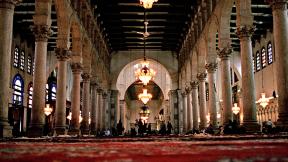
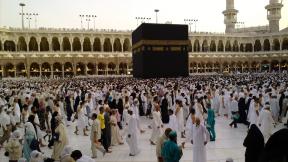
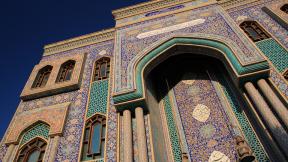
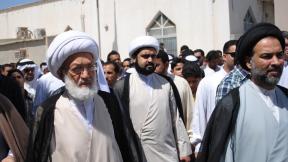


Comments
Your article on Shia-Sunni dialogue for mutual harmony reminded me of the story I heard in Dhaka while visiting the legendary Ahsan Manzil of Nawab Sir Salimullah, the great Muslim philanthropist and the host to the foundational meeting of the All India Muslim League in Dhaka in 1906. Sometime in the mid-1890s, a Shia-Sunni conflict broke out in Dhaka which, at that time, had a sizable Shia population. In order to strengthen their manpower, the Sunnis had to call for reinforcement of their "troops" from Northern Bengal, just in case there was a show down. Thousands of Sunnis marched from outlying cities to Dhaka to help their beleagured sectarian brothers brothers.Nawab Salimullah invited the religious leaders from both communities to his palace Ahsan Manzil and pleaded with them to cool it off. He offered his mediation to resolve whatever was the dispute that triggered the conflict and asked the Sunni leaders to send their "troops" back to their villages and towns. The Sunni leaders, fearing that in case the disput was not resolved and the conflict broke out again, they might need some fighting men, insisted that their men would stay in Dhaka untill the mediation succeeds. They also asked that Nawab Salimullah should take care of the board and lodging of these 7 to 8 thousand 'musafirs." The Shia leaders also requested that an equal number from their side should also be hosted by Nawab sahib to "demonstrate his neutrality and good will to both communities." The mediation efforts continued for about two weeks; Nawab Salimullah went broke, and the great Ahsan Manzil had to be mortgaged to a Hindu baniya for the greater good of the Muslim unity.Mumtaz AhmadProfessor of Political ScienceHampton UniversityHampton, VA 23668
Location
Excellent and well thought. We all must strive for real brotherhood as ordained in Quran.May Allh bless us with the strength and courage to fulfil this commitment.
Location
My Dear Brother Mujahid, AssalaamU Alaikum,May allah (SWT) bless you for this great initiative to bring it to the attention of Umma at large. We at the Islamic center of Long Island, westbury have been doing this for the last many years,We have invited many times excellent Shia scholars as lately as Sunday march 6th. for scholarly presentations which have nothing to do with our mutual differences. Some people have criticised me but we are still chugging on,InshaAllah.
Location
Assalaumu Alyakum, I support the essence of this artical, it is well over do. I'm a Shia in Ca. who loves all of the believing sisters in Islam. We need to get together for the love of ALLAH, THE UMMA AND ARE CHILDREN. Because the Umma is not working at it's fullest strength we are losing are children to this dunya. May Allah bless this and all efforts towards the light.
Location
Assalaamu alaikum, An excellent idea. Perhaps the perhaps the political climate in the Muslim world will not allow such a dialogue at the present time but certainly in North America, where the Muslim body is still forming, such an idea may be workable. It is no doubt a dialogues and reaching out whose time has come. Maybe this might be a catalyst for the dismantling of our sectarianism culture. It is utterly ridiculous that during this age of Muslim Christian dialogue, Sunnis and Shi'is hardly speak to each other, let alone work together in any meaningful way.
Location
Salaam Alaikum Brother & Sisters in faith,We at the United Muslim Foundation would like to take this opportunity to commend Sound Vision and in particular Br.Mujahid for this well thought out article which highlights the impotance and urgency of Shia Sunni dialogue. The United Muslim Foundation is very excited to learn that there are like minded individuals out there who want to further dialogue, unity and understanding among the Shia and Sunni communities. WE WOULD LIKE INDIVIDUALS AND/OR CENTERS WHO ARE OPEN AND INTERESTED IN BEGINING SUCH AN EFFORT, WHEREEVER THEY MAY BE, TO CONTACT US. The United Muslim Foundation is a registered non-profit organization which serves to Promote Unity, Educate Society and Serve Humanity. We aim to Serve Humanity, working United with Muslims of all cultures, races, and nationalities and extending solidarity to other religious organizations, learning centers and local institutions, thereby promoting greater Islamic awareness and cultural understandingWith Much Hope,Ahmed Sachedina - DirectorUnited Muslim Foundation Inc.www.unitedmuslimfoundation.orgTel: (407) 804-1504Fax: (407) 804-9144
Location
To put forth such a recommendation to have a dialog between the shia/sunni brothers is wise, brave and timely. I humbly suggest that muslim governments be out of this dialog specially the Arab governments. Thank you.
Location
Alahamdolilah this will be a great step. To corner the Opresserors agenda of divide and rule. There are agents on both side who fan hatred which have to be recognised and thrown out so the Shia and Sunnis can live together amicably
Location
Salaamun AlaikumWell written. Your action points need to be put into practice as soon as possible in parts of the world where Shia Sunni live together.Tolerance and unity will lead us to victory against the common enemy.
Location
I guess the correct verse number for"He is the final judge of religious disagreements" is 16:124. But I am not quite sure if this verse really addresses Shia-Sunni difference and will appreciate if you could shed some light in regards to this verse.Apart from that this is really a great article.
Location
Pages
Add new comment